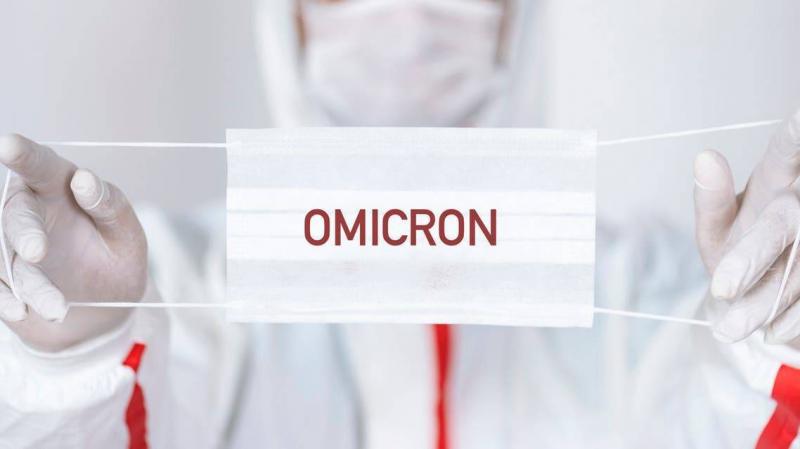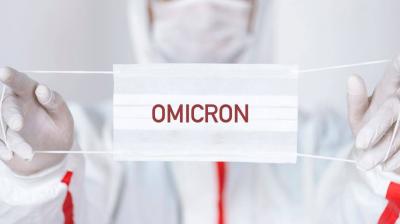An international scientific team has identified antibodies that neutralize the Omicron variant and other mutations of the novel coronavirus. These antibodies target regions of the virus's spike protein that remain largely unchanged as the virus mutates. By identifying these "broadly neutralizing" targets on the spike protein, it may be possible to design vaccines and antibody therapies that will be effective not only against the Omicron variant but also against other variants that may emerge in the future, explains David Vessler, a researcher at the Howard Hughes Medical Institute and an associate professor of biochemistry at the University of Washington in Seattle. Vessler stated in a report published on the University of Washington's website that this discovery indicates that "by focusing on antibodies that target these highly conserved sites on the spike protein, there is a way to overcome the ongoing evolution of the virus."
Vessler led the research project that discovered these antibodies in collaboration with a team of researchers from Switzerland, and their findings were published in the latest issue of Nature. A tally by Reuters shows that more than 283.23 million people have been infected by the novel coronavirus worldwide, with total deaths attributed to the virus reaching 5,716,761. Infections have been reported in more than 210 countries and regions since the first cases were identified in China in December 2019.
The Omicron variant has 37 mutations in the spike protein that the virus uses to attach to and invade human cells, which is an unusually high number of mutations. These changes are believed to partially explain the variant's rapid spread, its ability to infect vaccinated individuals, and its capacity to reinfect those previously infected. Vessler stated, "The main questions we were trying to answer were: 'How did this set of mutations in the spike protein of the Omicron variant affect its ability to bind to cells and evade the antibody responses of the immune system?'"
Vessler and his colleagues speculate that a large number of Omicron mutations may have accumulated during a prolonged infection in an immunocompromised individual or due to the virus jumping from humans to an animal species and back again. To assess the impact of these mutations, the researchers designed a virus called the "pseudovirus," to produce spike proteins on its surface as coronaviruses do, and then created pseudoviruses containing spike proteins with Omicron mutations as well as those found in earlier variants identified during the pandemic.
Initially, the researchers examined the ability of different versions of the spike protein to bind to a protein on the surface of cells that the virus uses to attach and enter the cell, known as the "angiotensin-converting enzyme 2" (ACE2) receptor. They found that the Omicron spike protein could bind 2.4 times better than the spike protein from the virus isolated at the beginning of the pandemic, and they also discovered that the Omicron version was capable of binding to ACE2 receptors in mice efficiently, indicating that Omicron may be able to transmit between humans and other mammals.
The researchers then looked at the effectiveness of antibodies generated against previous virus strains in protecting against the Omicron variant, using antibodies from patients who had previously contracted earlier versions of the virus, those vaccinated against earlier strains, or individuals who had been infected and then vaccinated. They found that antibodies from people infected with earlier strains and those who received one of the currently six most widely used vaccines significantly reduced the ability to prevent infection. Antibodies from individuals who had been infected, recovered, and then received two vaccine doses also showed decreased activity; however, the decline was less severe, about fivefold, clearly indicating that vaccination after infection is beneficial.
Antibodies from a group of kidney dialysis patients who received a booster dose demonstrated a fourfold decline in neutralization activity. Vessler noted, "This indicates that a third dose is really beneficial against Omicron." The researchers found that all currently authorized antibody treatments or those approved for use with patients at risk of the virus, except for one treatment, showed no activity or significantly reduced activity against Omicron in the laboratory. The exception was an antibody named Sotrovimab, which had two- to threefold neutralizing activity. However, when they tested a larger array of antibodies generated against earlier virus strains, the researchers identified four categories of antibodies that retained the ability to neutralize Omicron. Each category targeted one of four specific areas of the spike protein that are not only present in the variants of the novel coronavirus but also in a range of related coronaviruses called sarbecoviruses. These sites on the protein may persist because they perform a critical function that the protein loses if it mutates and are referred to as "conserved" regions.
Vessler stated that the discovery that antibodies can neutralize by recognizing protected areas in various different variants of the virus suggests that designing vaccines and antibody therapies targeting these areas could be effective against a wide array of variants that arise through mutations.




